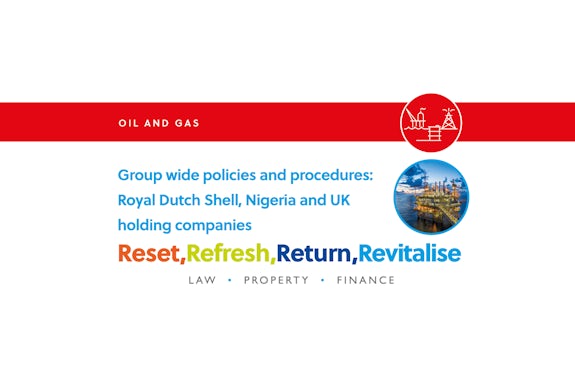
By David Winnie
May 12, 2025

Today the UK Supreme Court delivered its judgment on whether citizens of Nigeria could sue Shell in the UK over oil spills in Nigeria: they can.
The majority of UK companies don’t have subsidiaries in Nigeria who have been caught up in a decade of scandal and complaints over damage to health and environment caused by oil spills. So why does this judgement matter to UK businesses, such as accountants, laundrettes and care homes? It affects UK businesses because while the judgment talks about jurisdiction, proportionality and reliable limiting principles, at its heart, the decision is about corporate responsibility.
A company is a standalone entity that is normally responsible for its own actions. This is what the court in the Shell/Nigeria case had emphasised. If a company doesn’t pay its suppliers, then unless there is a guarantee, the suppliers sue the defaulting company, not the parent company. If an employee slips and falls in the workplace, they sue the employer, not the group. This is because parent companies aren’t usually involved in the day to day running of their subsidiaries.
The affected Nigerian citizens wish to sue the UK based parent in the Shell group (Royal Dutch Shell) on the basis that it owed them a duty of care. They needed to show that although the Nigerian subsidiary ran the pipeline that caused the spills, Royal Dutch Shell was still in some way responsible and should have taken more steps to protect them.
In the case of the Shell group, the court found that Royal Dutch Shell exercised significant control and responsibility over the Nigerian subsidiary including for “the safe condition and environmentally responsible operation of Shell’s facilities and assets”. One of the key facts in the court’s decision was that Royal Dutch Shell set group wide mandatory health, safety and environmental policies. These policies will form part of the suit against Royal Dutch Shell for the damage in the Nigerian Delta.
Whilst the Nigerian citizens still have to prove that Royal Dutch Shell’s conduct amounted to negligence, the decision today confirms that parent companies who are involved in the management of its subsidiaries can be liable for alleged negligence.
Many enterprises use a group structure to manage and control specific liabilities and risks. Mandatory, group wide policies are common practice in group companies. They help set a consistent standard and minimise administration and bureaucracy. The downside is that if policies and procedures for things such as data protection, sexual harassment or health and safety, are mandatory group wide policies, then unwanted liability may attract to a parent company.
If you would like further information on the topic discussed in this blog, please contact Calum Crighton by email: ccrighton@gilsongray.co.uk or by phone: 0131 285 7841 / 07825 884 961. You can also view Calum’s profile by clicking here.
The information and opinions contained in this blog are for information only. They are not intended to constitute advice and should not be relied upon or considered as a replacement for advice. Before acting on any of the information contained in this blog, please seek specific advice from Gilson Gray.

Calum is a Partner, heading up our Oil & Gas/Energy team. He is recognised as a leader in his field and well-respected for ability to advise all companies from oil & gas majors right through to SMEs, with a particular expertise in decommissioning.